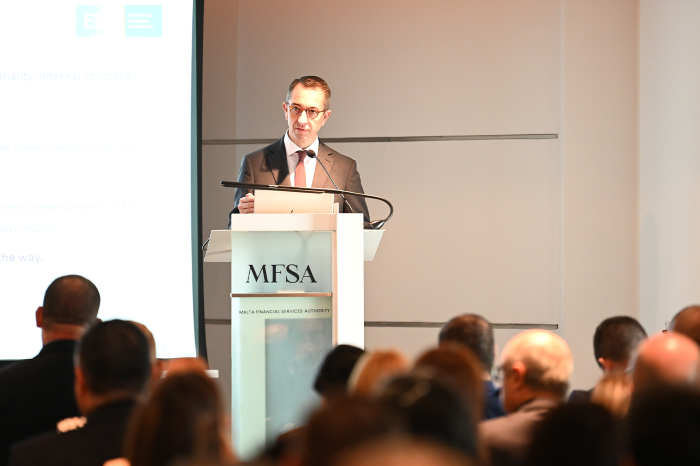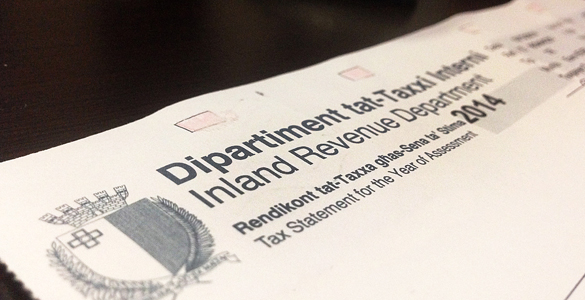On Wednesday, the MFSA’s Financial Supervisors Academy organised the ‘Future of Banking Supervision’ conference which underscored the crucial role banks can play in facilitating a smooth transition to a sustainable environment and economy.
The conference brought together key figures from the local and EU banking industry, including representatives from the European Banking Authority (EBA) and the European Central Bank.
The conference aimed to enhance transparency around the expectations of the Authority from banks and encourage discussion on upcoming regulations.
Attended by over 100 bank representatives, including Chairpersons, CEOs, CROs and Compliance Officers, the agenda was structured to address several key themes, including ESG risk management and sustainable finance in banking, regulating digital finance in banking, and AML/CFT developments and the supervisory approach.
“Banks can and should act as a catalyst in an orderly transition to a sustainable environment and economy,” stated keynote speaker Francois-Louis Michaud, Executive Director of the EBA. He argued that regulators have devised key tools in a wide range of areas, including risk management, supervisory practices, disclosures, climate stress testing, as well as enhancements to the prudential framework to facilitate this transition.
On the other hand, Christopher P. Buttigieg, MFSA’s Chief Officer Supervision remarked that “as the financial landscape continues to evolve, we must ensure that our financial supervision is adaptive to the changing environment. We must be mindful of the interconnectedness of global markets and the geopolitical risks that come with it. We must also continue to address the challenges of climate change and environmental risks and embrace digital finance to say ahead of the curve.”
Dr Buttigieg added that as Europe strives to remain competitive in an increasingly fast-moving financial and regulatory environment, MFSA must continue to strive for innovation in financial supervision and remain resilient to new challenges.
Digital transformation and resilience were also discussed by Anne Lécuyer, Deputy Director of the Directorate General Specialised Institutions & LSIs at the European Central Bank.
“With digital transformation, our strategic objective is to achieve further resilience, in particular operational resilience. This should contribute to the sustainability of banks’ business model and enable them, amongst other things, to reap the benefits of innovative technologies”.
A significant highlight of the conference was the presence of Richard Walker, the Vice Chairman of MONEYVAL, who highlighted the importance of having a countrywide effective AML/CFT system which is sufficiently resourced, including in relation to conducting risk assessment processes. This is in order to ensure effective AML/CFT compliance. He also pointed out that the banking sector will always be a major player in any jurisdiction’s compliance efforts. Local banks will remain key components in Malta’s next country evaluation.
Featured Image:
Guest speakers of “The Future of Banking Supervision” conference with MFSA officials
Top 5% of taxpayers responsible for one-third of all income tax paid in Malta
On the other hand, the bottom third of income earners pay just 1.7% of all income tax generated
The Malta Institute of Accountants prepares for its 2024 Anti-Money Laundering Conference
Held at the Radisson Blu, St Julians, this latest AML Conference promises to bring exclusive insights on new procedures
Eurozone interest rates to remain unchanged
The European Central Bank noted that price pressures remain persistent






